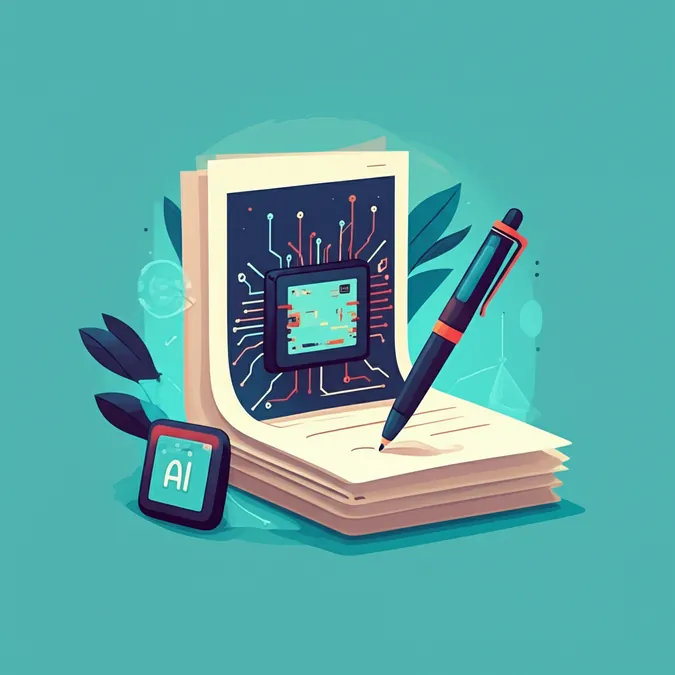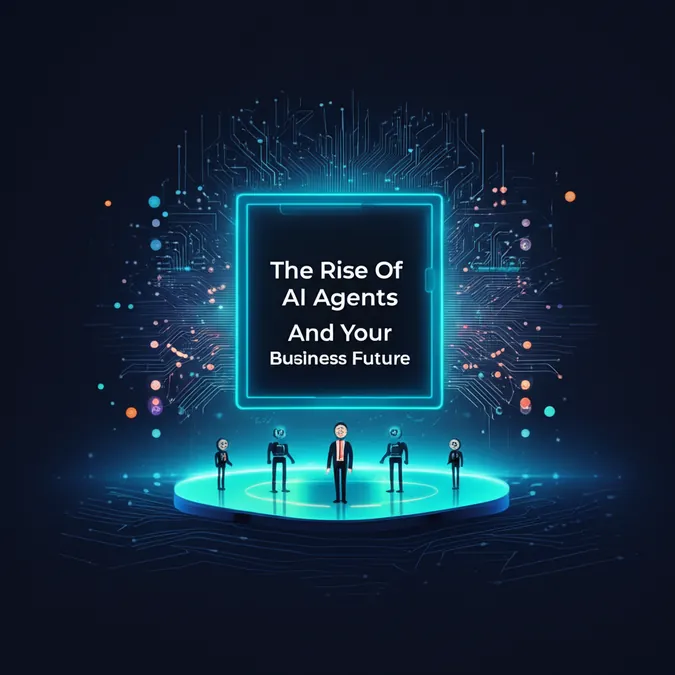Developer Offer
Try ImaginePro API with 50 Free Credits
Build and ship AI-powered visuals with Midjourney, Flux, and more — free credits refresh every month.
AI Narratives The Risk To Human Connection
Years ago, I mistakenly believed my writing career was immune to the AI revolution. I thought the financial realities of being a writer would shield me from Big Techs advancements. Yet, here we are; the machines have arrived, targeting even those of us who navigate the world with our thoughts and words.
The Unsettling Rise of AI in Writing
Each day brings more unsettling news. AIs influence is seeping into academia, with tools like ChatGPT writing papers and AI assisting in grading. A simple online search reveals numerous AI applications designed for novel writing, such as Squibler and Sudowrite. Novelists are even engaging in discussions with AI like ChatGPT about its potential to replace them, receiving surprisingly articulate responses. AI models can now take complex prompts, like generating a spy romance novel in the combined styles of Mantel, Highsmith, and Rooney, and produce content.
The dawn of the machine apocalypse has broken upon the act of writing. It seems all remaining scribes should surrender their tools and step into this new light, arms raised.
But I argue that we absolutely cannot let machines write our novels. And why is that? Because if we weren't told a novel was penned by AI, we might never discern the difference.
This might sound like a paradox, or deliberately provocative, but I mean every word. Writers and readers depend on each other, even though historically, we have been quite poor at finding one another. We often feel like we are on opposite ends of a long, dark tunnel, straining to hear faint whispers: Are you out there?
The Fragile Link and AI Deception
This connection is already incredibly fragile and susceptible to corruption. Research indicates that AI detection software has a notably poor success rate. As New York magazine recently reported, the program ZeroGPT identified a portion of the Book Of Genesis as 93 percent AI generated. While I do not believe great novels will emerge from Large Language Models, now or ever, Im not convinced that greatness is a secure defense. As much as I would love to declare victory for humanity—call me when an LLM writes The Last Samurai or What Belongs To You—it seems prudent to ask: Doesnt insisting on greatness as the sole distinguisher between human and machine already concede a significant loss? How many truly great novels are produced by humans in any given decade anyway? You can read more thoughts on this topic in the essay on AI and the Rise of Mediocrity.
The Human Investment in Storytelling
I raise these questions because I have lived them. I have spent an embarrassingly long time agonizing over my sentences—hundreds of hours of my life that could have been spent playing with my child, exercising, managing finances, cleaning, or simply enjoying the outdoors. If I did not hope that an appreciative reader would sense my effort—my humanity—in my writing, I never would have toiled so obsessively for so long.
And yet, a colder, more analytical part of me concedes that a substantial portion of novel writing veers dangerously close to the territory now claimed by LLMs. Mapping out narrative possibilities, analyzing how other novels create and resolve tension, and consciously or subconsciously mimicking the prose rhythms of other writers—these are tasks that occupy more of a novelists time than one might admit in a public interview.
The Elusive Nature of Intent
As writers, we can always retreat to more philosophical arguments. What about intent? An AI cannot intend things in the way humans do. An AI can construct a story, perhaps even a decent one. But it cannot want to craft a story, or obsess over how people will perceive it, or lie awake fixating on a childhood memory that it decides must be included in the book.
As a writer, I find these thoughts comforting and reaffirming. I often turn to them. However, this ground also quickly becomes unstable.
After all, how skilled have we, as humans, proven at correctly identifying intent in a piece of art?
What does a writer typically say at a public forum when a reader confidently presents their interpretation of the writers thoughts during the creative process? How often is the response, Wow, you have completely nailed it? At best, the writer might offer a diplomatic, I never thought about it that way.
The Ancient Longing for Authentic Connection
These concerns are far older than WiFi. The questions at the core of the AI and writing debate are as old as readers and writers themselves. There is a sharp scene in Madame Bovary, for instance, where the wealthy cad Rodolphe writes a falsely anguished goodbye letter to Emma Bovary. He hopes to let her down easily after amusing himself with her affections. He feels a distant pity, even a little contempt, as he writes, and then, for effect, he dips his fingers in water and leaves a few droplets on the page, suggesting tears.
None of us wants to be the unwitting recipient of such a letter. We genuinely want to believe that the stories we read are telling us something about the people who wrote them, and therefore, about humanity. This is the kind of collective experience we cannot allow AI to steal from us.
I have met people who have read something I have written. I have introduced myself to writers I admire. And I can report that once you meet someone in person because one of you wrote something the other read, you will never view human interaction in the same way. There is something unique and elevated in that moment. It is awkward, yet indescribably sweet. The readers eyes ask: Was it you who sent those messages? And the writers astonished eyes reply: Yes, that was me. When readers and writers meet, they become, in a spiritual sense, old friends. You can eagerly ask each other the kinds of questions that normally disrupt social gatherings.
Preserving the Human Echo in Storytelling
Writing takes an immense amount of time. It consumes days, hours, weekends. It sometimes causes headaches, and almost always a backache. It is neither convenient nor financially rewarding work. And yet, the written word remains the only effective method of telepathy ever invented, however imperfect it may be.
We spend nearly every conscious moment searching in the dark, seeking traces of others. Removing human beings from the other end of this storytelling tunnel would double the time we spend in that darkness. It would encase us in the midnight of our aloneness.
When I imagine following a voice at the end of the tunnel only to find no human there, I am overwhelmed by a sadness too vast to contemplate. Writing and reading are ways of believing that other people exist when you are alone. If we eliminate that connection, we might not even notice it at first. But it will be one more way for us not to know each other.
Compare Plans & Pricing
Find the plan that matches your workload and unlock full access to ImaginePro.
| Plan | Price | Highlights |
|---|---|---|
| Standard | $8 / month |
|
| Premium | $20 / month |
|
Need custom terms? Talk to us to tailor credits, rate limits, or deployment options.
View All Pricing Details

